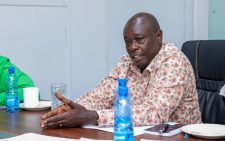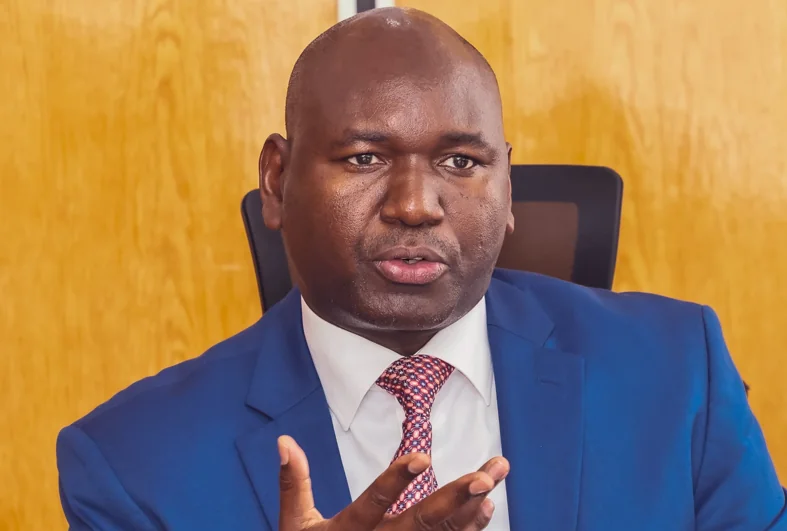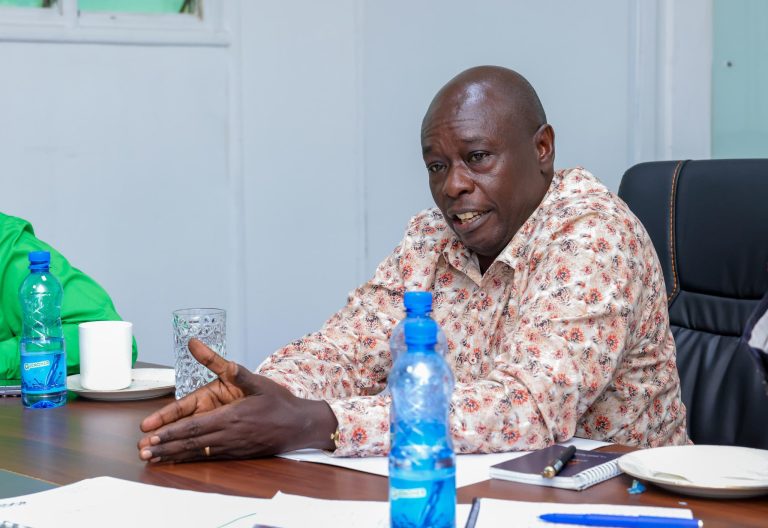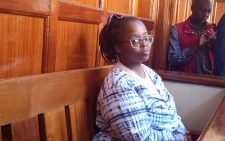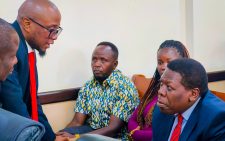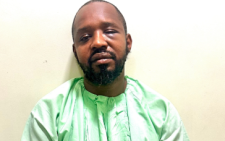Kisumu sex workers push for access to healthcare
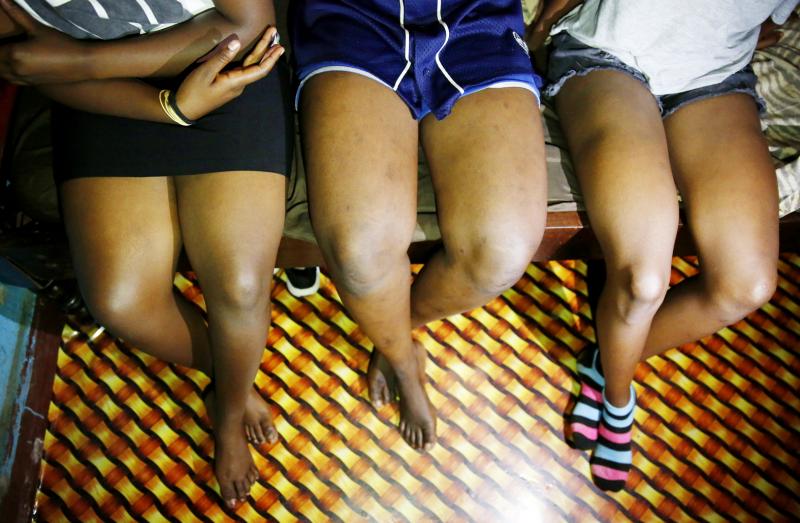
When Mary Awino, a sex worker at Kondele’s red light district in Kisumu, went for random screening for cervical cancer in 2014, she assumed it was just a normal test.
The mother of one did not think the test was necessary, after all, the pressure to make even Sh200 to take home from the illicit trade left her with little to worry about her health.
Although she had been in the sex trade for about two years, she had not thought much about her health. Every time she would fall sick or contract a sexually transmitted infection, she would spend a few days off to treat herself then resume work as usual.
She is among thousands of sex workers in Nyanza who had no access to proper sexual and reproductive health services despite being among the high-risk and vulnerable groups.
In hospitals, claims of discriminations against sex workers reigned supreme while the public also subjected them to stigma with a majority of them fearing disclosing their activities. They suffered in silence.
So, when she was convinced to go for a cervical cancer test by a colleague, she just assumed it was another day at work. Results showed she had stage one cervical cancer. When we caught up with her last week in the company of other sex workers, they were held up in a discussion about their welfare.
Awino narrated to People Daily the pain she endured as she battled the reality that she was developing cervical cancer. She knew her fate was concealed and it was just a matter of time before she lost everything to the disease.
“I did not show any signs but doctors told me I was developing some lesions, “she explains. She was subjected to several tests with her specimen taken to Eldoret Teaching and Referral Hospital for further tests.
“Luckily, I was told the cervical cancer was just in its initial stages and could be treated,” she explains.
Months later, part of her cervix was removed through an operation and she was successfully treated of the disease.
This marked the beginning of her journey in the campaign to increase sexual and reproductive health awareness among sex workers. She is now part of a group that is vocal about Sexual and Reproductive Health and Rights (SRHR).
Working under the group Kisumu Sex Workers Alliance, the group of volunteer sex workers have been undertaking advocacy among their peers and enlightening them on ways to keep safe and facilities where they can access health services.
Dotie Agala, who also doubles up as the Executive Director of Kisumu Sex workers Alliance says access to SRHR services has been difficult for sex workers.
The alliance has branches spread in the counties of Migori, Kisii, Homa Bay, Kisumu and Siaya. Through their efforts, several sex workers have been enrolled into Pre-exposure prophylaxis (PrEP) programmes.
“We have been pushing even county governments to ensure they help us access SRHR services,” she explains.
“Our promotion comes to different areas where we are addressing HIV/Aids services, mental health services, maternal health and sexual reproductive health as a whole,” she added. They are working closely with mainstream organisations to ensure sex workers are enrolled in the programme. For instance, in Homa Bay, they are working with LVCT health to ensure sex workers access HIV prevention services.
The sex workers are screened for HIV and those who turn out positive are put on treatment while the negative ones are counselled and told more about PrEP and when they agree, they are initiated to start taking the drugs.
Specific facilities
“We have specific facilities where we refer them to which we call dropping centres (dices) with peer educators attached to each individual. The educators help us follow up on their refills and we track the records using our database to ensure that all those whom we have initiated in the process are adhering and are continuing with PrEP,” she said.
Peer educators are trained on myths and the misconceptions about the drugs, they also address challenges that sex workers face when they are take PrEP. This has improved our continuity with the drugs.
Besides referral on PrEP, she says they also educate the sex workers about PrEP on a monthly basis.
“To some extent we also take some of the commodities like PrEP and condom to where the sex workers are for those who cannot access facilities at the time when they need it,” she said.
The sex workers are also trained on alcohol and substance abuse. On SRHR, Agala noted that they conduct cervical cancer screening in Kisumu where they educate the sex workers on the importance of early screening. They are currently working with 12 health facilities for referrals and screening. In Kisumu, they have screened up to 500 sex workers in the last year out of which 16 turned positive while six of the workers succumbed to the disease. Agala has also appealed to the sex workers to go for family planning and other SRHR services. The sex workers are given free treatment for sexually transmitted diseases from the dices, as they access HIV prevention and control components.
The alliance has so far enrolled 500 sex workers in Siaya in their programmes accessing SRHR services. In Homa Bay they have enrolled 715 while in Kisumu they have 2,000 sex workers.
“At times we always do more than that and in Kisumu we normally talk about 5,000 sex workers,”she said.
According to statistics at the Kisumu’s Health department as of September, out of all clients that are on PrEP treatments, 4.8 per cent are female sex workers.
Interviews with a number of sex workers established that a majority of them have been able to access SRHR services as a result of advocacy by their own members.
Mercy Nyaboke (not her real name), a sex worker from Kisii told People Daily that she started using PrEP as a result of advocacy by her colleagues.
The mother of two says she has been in the trade for more than five years but has never had access to SRHR services.
“I started using PrEP as a result of volunteers who encouraged me to use the drug,” Nyaboke revealed.
She claims that she feared going for medical checkups for fear of being stigmatised, however, through the initiative, she has been able to access cervical cancer screening while also receiving PrEPs.
According to Eunice Kinywa, Kisumu County’s HIV Coordinator, most of the sex workers have been enrolled in PrEP as a result of advocacy by some of their own members.






